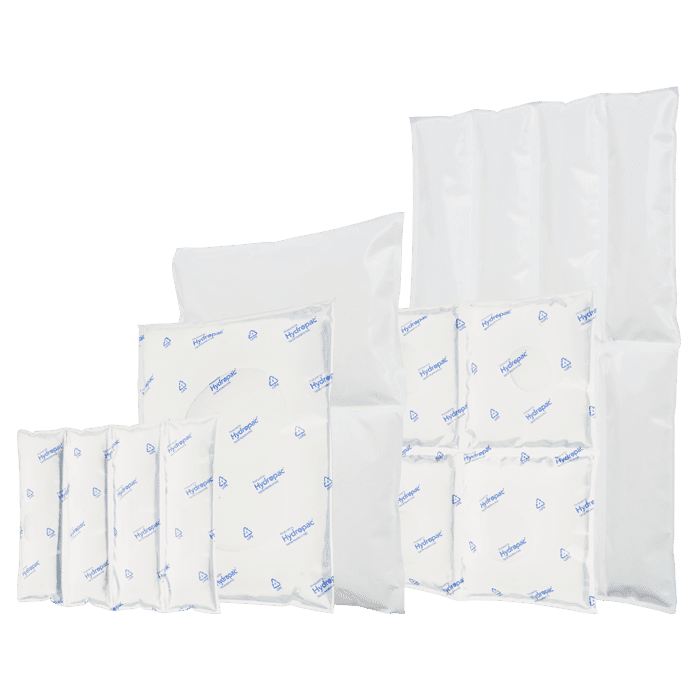The impact COVID-19 has had on the environment
The global outbreak of COVID-19 has affected every part of human lives, including the physical environment around us. The measures that were and still are being taken to slow down the spread of the virus have had significant affects on the environment, both good and bad.
Custom chilled solutions for you
Hydropac offers every customer a customized solution for chilled and conditioned shipping. For example, we help a customer with limited freezing capacity to deliver gel packs frozen and ready to use, and we can manufacture almost all shapes and sizes of cooling elements. As a customer, you come first: we are here to help you.
Carbon emissions – The daily global carbon emissions in early April 2020 fell by 17%. This was mainly due to the reduction in industrial activities and reduction in use of transportation. However, despite positive reduction in global carbon emissions, the concentration of carbon dioxide in the atmosphere was the highest that was ever recorded in May 2020.
Wildlife – Throughout the global lockdown, the demand for fish decreased, which left fishing fleets around the world out of service.
As people stayed at home due to travel and lockdown restrictions, some animals were spotted in cities around the world that would normally live in rural areas. Due to the lack of traffic on the roads in March and April 2020, fatal collisions with animals such as elk, moose, deer, mountain lions and bears fell by 58% and as much as 73% in some US roads. The road deaths of other domestic animals (such as sheep and dogs) also show a similar decrease.
Food production – Smaller farmers have taken to sell produce online to keep money coming in. This has led to more delivery vans on the road, although required for these producers to keep their heads above water.
Online grocery shopping has risen substantially during the pandemic, due to many vulnerable people not being able to leave their house whilst shielding in lockdown, and others not feeling comfortable enough to go into large shops to get their food every week.
Although carbon emissions dropped during the COVID-19 lockdown, methane emissions from livestock did continue to rise, as methane is more potent than carbon dioxide.
Litter – Due to the use of disposable face masks and gloves throughout the pandemic, an alarming amount of masks have been littered into the environment, adding to the existing worldwide problem of both littered and plastic waste.
Protective plastic screens and personal protective equipment, such as gloves, have been at high demand, again increasing the usage and disposal of single-use items
Water quality – Throughout the Peruvian jungle, there were 14 oil spills from the beginning of the pandemic through to October 2020. Eight of the spills were in a singular sector operated by a business who ceased operations during the pandemic and did not maintain their pipes and wells. The leaked oil seeped into the ground where it contaminated the drinking water of the Quichua territory, affecting indigenous people.
Shortly after the lockdown happened in March 2020, the water in the Venice canals cleared and experienced a better flow. The reason why the water was so clear was because the sediment in the canals settled due to the lack of boat traffic disturbing the waterways.
Sustainability Hydropac and CSR
Sustainability isn’t just a trend for us – it’s a promise. As we innovate, create, and lead, we keep our planet’s well-being at the forefront. With Hydropac, you’re not just preserving the quality of your cargo; you’re contributing to a healthier world.
Experience the power of sustainable temperature assurance with Hydropac – where excellence and environmental responsibility coexist for a brighter future.







